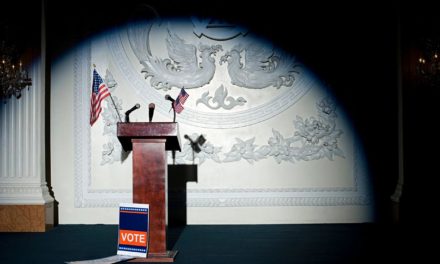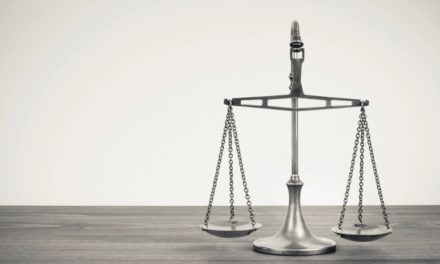At first blush, the ethics of writing about NATO are easily identified and widely applied. NATO is formally identified as the North Atlantic Treaty Organization. It has thirty member nations. The United States of America and Canada are members. The other twenty-eight are in Europe. Its mission is brief and to the point:
Security in our daily lives is key to our well-being. NATO’s purpose is to guarantee the freedom and security of its members through political and military means. POLITICAL – NATO promotes democratic values and enables members to consult and cooperate on defense and security-related issues to solve problems, build trust and, in the long run, prevent conflict. MILITARY – NATO is committed to the peaceful resolution of disputes. If diplomatic efforts fail, it has the military power to undertake crisis-management operations. These are carried out under the collective defense clause of NATO’s founding treaty – Article 5 of the Washington Treaty or under a United Nations mandate, alone or in cooperation with other countries and international organizations.[1]
A deeper look into NATO reveals some dispute, at least at the level of ethics and morality. It has a Code of Conduct, applicable to all members and widely distributed internationally. “Service in the North Atlantic Treaty Organization entails promoting the highest levels of trust and confidence in our integrity, impartiality, loyalty, accountability, and professionalism. These five core values – and the principles that exemplify them – form the basis of this code, which shall guide the conduct of all NATO staff, whether they be civilian or military, in all NATO bodies. This code sets forth the framework and standards for the personal and professional conduct which is to be expected of those entrusted with positions in the Alliance.”[2]
Only one website is anti-NATO. “Why is NATO wrong? The NATO is treated as beyond moral judgment: for most politicians in Europe, it simply exists, like gravity. For them, the only issues are: who should join, and where should it intervene? Nevertheless, the NATO has no moral basis: its existence and its fundamental purpose are wrong – let alone its interventions.”[3] The site went up in 2004 and seemingly has not been updated. Its principal grievances arise out of hunting versus anti-hunting notions, control by political and military elites, not imposing political neutrality, seeking expansion without limit, enforcing NATO values on the whole planet, and blocking alternative future worlds.
That said, the rest of Europe and North America are pro-NATO, and for good reason. NATO’s 2010 Strategic Concept is clear. “Active Engagement, Modern Defense is a clear and resolute statement of NATO’s core tasks and principles, its values, the evolving security environment, and the Alliance’s strategic objectives. It is a unique community of values committed to the principles of individual liberty, democracy, human rights, and the rule of law. It presents NATO’s three essential core tasks – collective defense, crisis management, and cooperative security. It also emphasizes Alliance solidarity, the importance of transatlantic consultation, and the need to engage in a continuous process of reform.”[4]
Formed in 1949 with the signing of the Washington Treaty, the US joined NATO’s fundamental goal—safeguarding the Allies’ freedom and security by political and military means. It is the principal security instrument of the transatlantic community. It expresses our common democratic values. It is the practical means through which the security of North America and Europe are permanently tied together. NATO enlargement has furthered the U.S. goal of a Europe whole, free, and at peace.[5]
For the US, Article 5 of the Washington Treaty is a fundamental value—an attack against one ally is an attack against all. Article 4 of the treaty ensures consultations among Allies on security matters of common interest, including a narrowly defined Soviet threat to the critical mission in Afghanistan, peacekeeping in Kosovo, and new threats to security such as cyber-attacks, and global threats such as terrorism and piracy that affect the Alliance and its global network of partners.[6]
The European dominos fell in order. Vladimir Putin ordered Russian forces to invade Ukraine.
“Russia’s full-scale invasion on Feb. 24, 2022, is the largest mobilization of forces Europe has seen since 1945. Russia has superior military might, and Putin has indicated that his ultimate goal is to capture Kyiv, topple Ukraine’s democratically elected government, and subsume the country into Russia’s orbit. The invasion threatens to destabilize the already volatile post-Soviet region, with serious consequences for the security structure that has governed Europe since the 1990s. Putin has long lamented the loss of Ukraine and other republics when the Soviet Union broke apart. Now, diminishing NATO, the military alliance that helped keep the Soviets in check, appears to be part of his mission.[7]
This blog narrowly focuses on the ethics of writing. This particular blog broadly touches on the much larger issue of NATO and its current role in European safety, fragility, and ethicality. Those large topics necessarily intersect with Ukraine, Putin, NATO membership and U.S. ethical, legal, and cybersecurity concerns. There are experts infinitely better informed and knowledgeable. Professor Claire Finkelstein, Algernon Biddle Professor of Law and Professor of Philosophy, at the University of Pennsylvania Carey School of Law is widely known and uniquely positioned to comment. She is the founder and faculty director of the Center for Ethics and the Rule of Law, a non-partisan interdisciplinary institute affiliated with the University of Pennsylvania’s Annenberg Public Policy Center. On February 25, 2022, she had this to say about NATO and Russian President Vladimir Putin’s invasion of Ukraine.
“As the extent of Putin’s ambitions become clear, it should be evident that Russia has been planning a total takeover of Ukraine for a long, long time. Ancillary goals, such as the weakening of NATO, should be understood in the context of his ambition to take over Ukraine. His great fear was that Ukraine would join NATO and that NATO would therefore respond with force once Russia invaded Ukraine. But he gambled that the West would not respond with military force to his attempts to annex all of Ukraine . . . He learned from the takeover of Crimea that though there may be bloodshed, in the end he can prevail. Crimea was the staging ground for the current takeover, and his experimentation with techniques such as cyber and Denial of Service attacks, as well as propaganda, etc., are being replicated here with a vengeance.”[8]
Another highly qualified expert is David E. DeCosse, the director of the Religious & Catholic Ethics and Campus Ethics programs at the Markkula Center for Applied Ethics. On March 22, 2022, he wrote an incisive essay on NATO, Putin, Ukraine, and moral outrage.
Any reflection on the ethics of war and the war in Ukraine must begin with what is brutally obvious: The Russian invasion is a moral outrage that has no justification in the ethics of war. But even in the hell of this war, distinctions about moral reasoning can be made. By making such distinctions, we can make clearer the moral responsibility for the conflict and vouch for the thin but powerful reed of hope that comes from the capacity to make moral judgments in the face of relentless gaslighting in service to murderous violence.[9]
Professor De Crosse clearly defined the basis for moral outrage at Putin’s invasion of Ukraine. “To understand why the invasion is a moral outrage, we must take note of what may seem odd: The ethics of war is properly understood as an ethics of politics. I don’t mean politics in a reductionist, horse-race sense. But I mean it in the sense of politics as the ways by which large groups of people organize themselves into societies with laws that require obedience; with leaders who have authority; and with processes by which power is transferred from one leader to the next. The outrage of the war—the outrage that gives rise to all its other outrages—is that the Russian invasion is precisely aimed at denying the people of Ukraine the right to determine the shape of their own political community.” The Ukraine war will not end well—they never do. But unless NATO punishes Putin for starting and ending it, his Ukraine invasion will mushroom and much of Europe may no longer exist. That is the ethics of writing about NATO.
[1] https://www.nato.int/nato-welcome/index.html
[2] https://www.nato.int/structur/recruit/info-doc/code-of-conduct.pdf
[3]http://web.inter.nl.net/users/Paul.Treanor/nato.html
[4] https://www.nato.int/cps/en/natohq/topics_56626.htm
[5]https://nato.usmission.gov/aboutnato/
[6] Ibid.
[7] https://www.nytimes.com/article/russia-ukraine-nato-europe.html
[8] https://www.law.upenn.edu/live/news/14515-prof-claire-finkelstein-discusses-ukraine-nato
[9] https://www.scu.edu/ethics/all-about-ethics/reflections-on-ethics-and-the-russian-invasion-of-ukraine/

I am an author and a part-time lawyer with a focus on ethics and professional discipline. I teach creative writing and ethics to law students at Arizona State University. Read my bio.
If you have an important story you want told, you can commission me to write it for you. Learn how.






 I am an author and a part-time lawyer with a focus on ethics and professional discipline. I teach creative writing and ethics to law students at Arizona State University.
I am an author and a part-time lawyer with a focus on ethics and professional discipline. I teach creative writing and ethics to law students at Arizona State University.  My latest novel is Hide & Be.
My latest novel is Hide & Be.  If you have an important story you want told, you can commission me to write it for you.
If you have an important story you want told, you can commission me to write it for you.